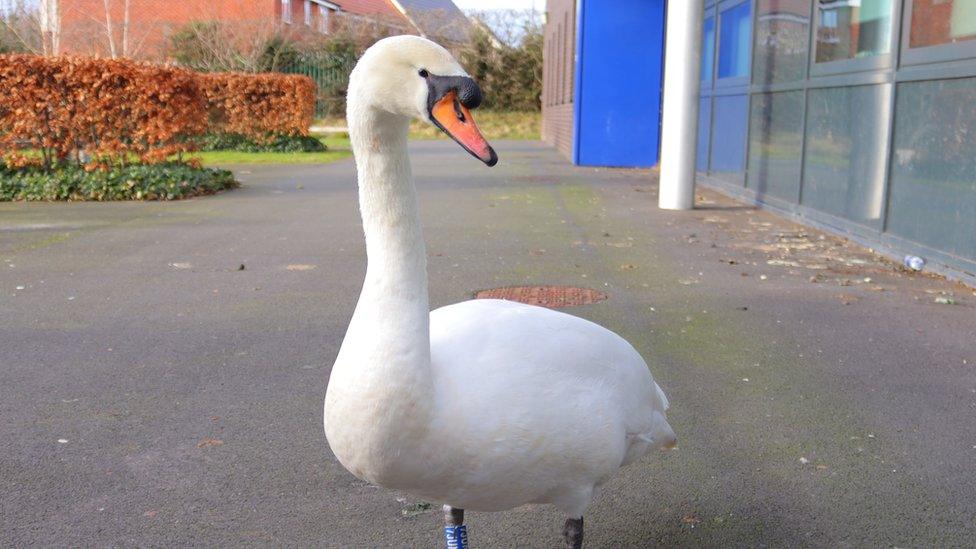Decayed bread pollutes Bolton lake turning swans pink
- Published
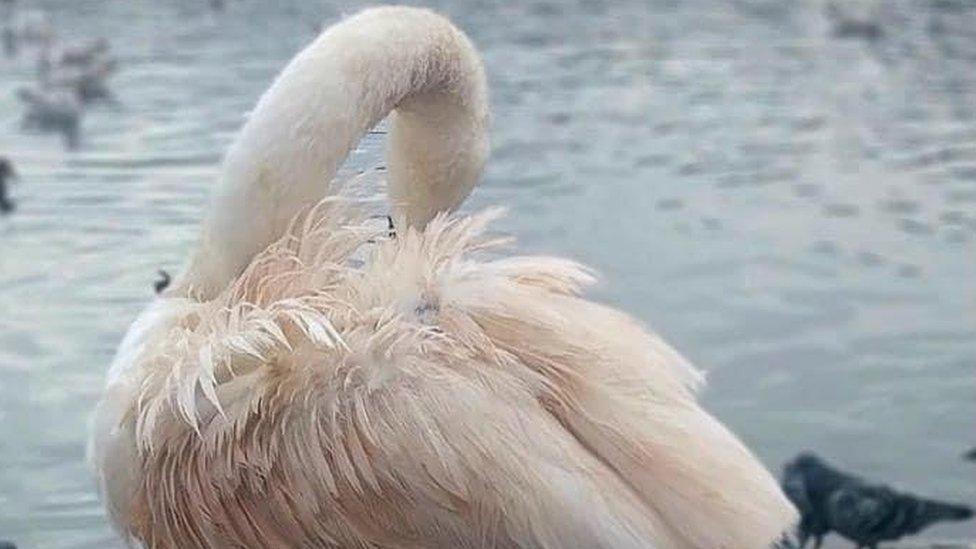
The fungus was cleaned from the swans by RPSCA volunteers
People have been urged not to feed bread to swans after decayed crumbs polluted a lake and caused a pair of birds to turn pink.
The RSPCA warning comes after the affected birds were rescued at Moses Gate Country Park in Bolton.
A fungus developed from the rotting bread polluting the lake and led the swans to contract a life-threatening disease which affected their feathers.
RSPCA officer Stephen Wickham said giving "the right food" was important.
The swans were taken into the charity's care last month after members of the public spotted the colour change in their plumage at the popular nature reserve.
Volunteers cleaned the birds and released them at Sale Water Park where they were being monitored.
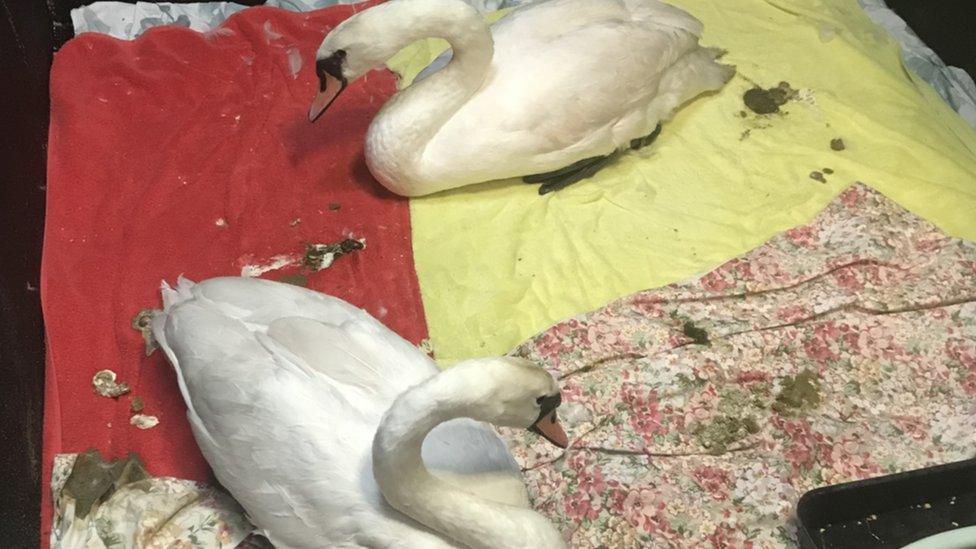
Pink feather syndrome is caused by a fungus which can put birds' lives at risk
Decaying bread can cause a fungus in water that gets on the animals, and spreads to become a condition known as pink feather syndrome.
The disease reduces their natural waterproofing and their ability to swim and fly, turning feathers brittle and waterlogged, and leaving them at risk of dying from hypothermia, the RSPCA said.
Mr Wickham said the charity was aware how much people enjoyed feeding the birds, but said bread was far from the ideal choice.
"Unfortunately bread fills them up without giving them the nutrients they need and it can affect their health," he said.
He said better alternatives included "finely chopped greens, such as cabbage, spinach and lettuce, as well as mixed corn, grain, wheat or bird seed".

Why not follow BBC Manchester on Facebook, external, X, external and Instagram, external? You can also send story ideas to northwest.newsonline@bbc.co.uk
Related topics
- Published1 March 2024
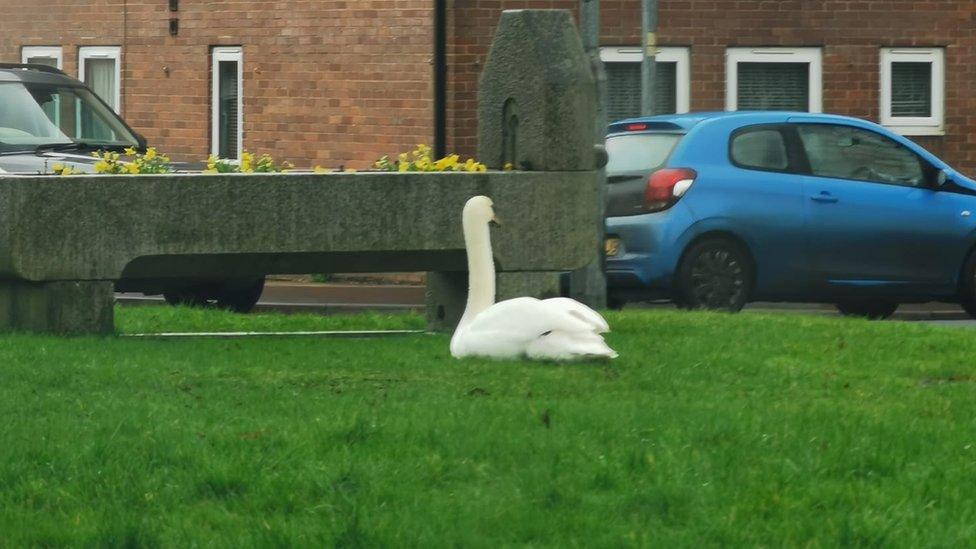
- Published14 February 2024
- Published23 January 2024
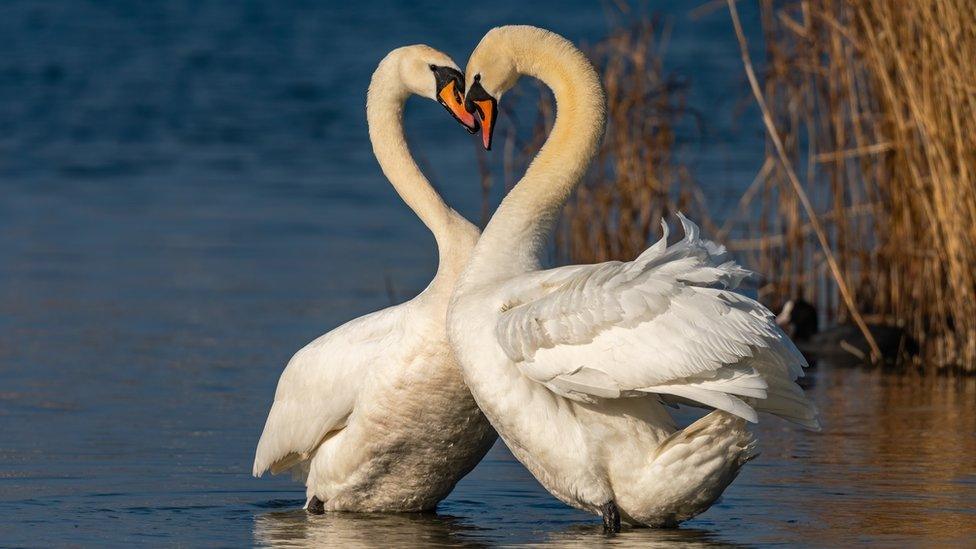
- Published17 January 2024
